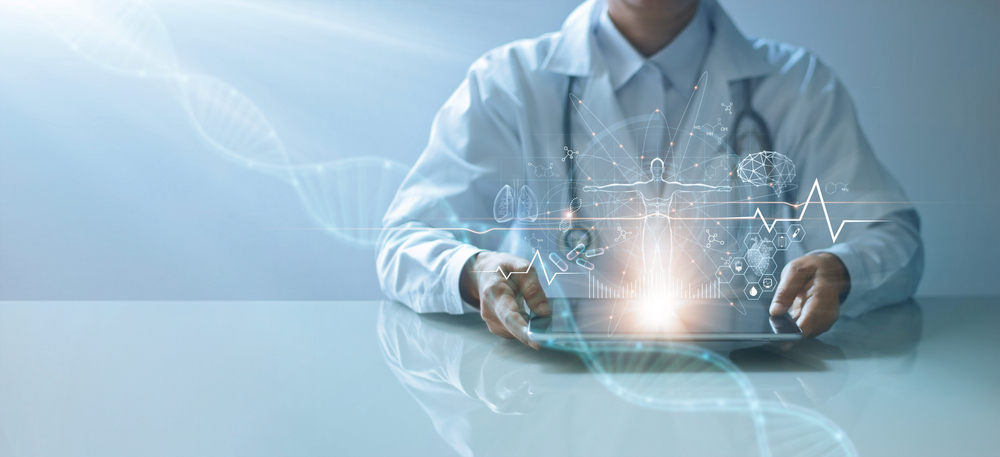A new year prompts me to look at new medical technologies – high tech gizmos to keep us healthy.
There are many innovations in many different fields but those likely to impact the most of us are:

AI and ML
Artificial intelligence and machine learning - in many ways mimicking what a good doctor should do. But, faster, without fatigue, distraction or grumping at their nurse.
AI can review records in a flash and so take into consideration all the illnesses and tests you’ve had in the past. It can call up a much more comprehensive list of things that might be wrong with you (the “differential diagnosis”) - why you’re anemic; what’s causing your neuropathy; what might the cause that mass on your CT scan – while your mere-mortal doctor may be lucky to come up with just a few common causes.
It can review images far quicker and more accurately than a human being – a boon in analyzing the massive numbers of images generated with mammograms, MRI scans etc.
It’s likely you’ve experienced the AI benefits of telemedicine already – which got a big boost from covid when we all had to distance.
This is being taken a step further with robotic “doctors” rounding on patients in hospitals. Or a robotic surgeon, like the Da Vinci surgical system, which means the specific skills of a surgeon in one location can be used to help out in some remote location. A submarines, outer space, a battlefield - anywhere there’s a connection.
It’s not just patients that like the convenience of telemedicine and not having to be in the office however – just don’t interrupt your doctor during his golf game.
Wearable Technology
To date most wearable devices are gizmos like i-watches and Fitbits. But we are moving beyond that with garments made with “omniphobic” silk based coils powered by “magnetic resonance coupling” that will allow incorporation of all kinds of sensors.
So far wearables have mainly been monitoring basics like steps taken and heart rate. But now can monitor blood pressure, heart rhythm, temperature, blood sugar, oxygen saturation, quality of sleep, speech patterns and physical activity – and can compute these to decide if you are heading for a stroke, a heart attack, diabetic coma or even a depression.
With fabrics, garments, like Nadi-X “the worlds smartest yoga pants” can monitor your posture – tell you if you’re doing it right. Or Owlet Dream socks monitor your baby’s oxygen level.
Personalization
Analysis of a person’s genome allows tailoring medications to individual metabolisms. Identify those with a gene variant that stops the anticoagulant clopidogrel (Plavix) working for example – so they and their doctor can know before they have a blood clot and a stroke for example.
Or the field of “pharmacogenomics” is finding particular favor in matching mental health issues to the best medicines, rather than trial and a lot of error.
Retail
The innovation I have the most reservation about however, is retail healthcare.
CVS, Walgreens, Walmart, Amazon are all getting on the bandwagon with “omnichannel” care combining online pharmacy and advice, and in-person with “doc-in-a-box” and vaccinations in the store.
However, at the same time, expect much less personal care. And doctors’ offices and hospitals (especially in rural areas) to be put out of business or be absorbed into some giant corporation.
I know getting an appointment to be seen - especially if you are unreasonable enough to want to see an actual doctor – is a challenge. But we are settling for second class care in my opinion.
However you get your healthcare, have a happy healthy new year.

